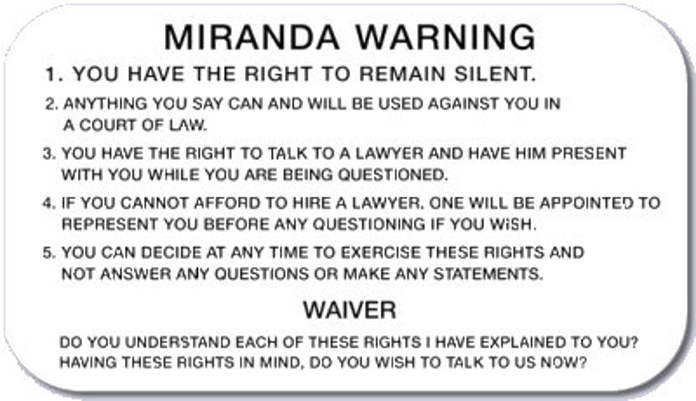
Learn from Us:
Legal Articles
Ohio Expungment Laws Become Lenient

Ohio expungement laws previously allowed only a "first offender" to apply for an expungement, or to have one's record sealed. Then, the law became more relaxed and permitted a person with one felony and one misdemeanor to apply for an expungement. Now, the law has again loosened and allows a person to seal an unlimited number of misdemeanors and up to five low-level (fourth or fifth degree) felonies, with restrictions.
Should I Pay the Waiver? Traffic Tickets

Stop before you pay that waiver! Oftentimes, it can make sense for a driver to contest a traffic ticket. For a low, one-time flat fee, a person can often hire an attorney to reduce or dismiss the charge, resulting in lower insurance premiums, a more favorable driving record, or in the case of a person with a Commercial Driver’s License (CDL), permit them to keep their license or keep their job. Contesting a speeding ticket can be more convenient that one might expect. For many moving violations, an attorney can often appear in court on behalf of the client, preventing the client from ever having to appear.
Why Create an LLC?

Oftentimes, when a business is established, its founders are quick to start working and the business's organizational structure becomes an afterthough. Setting up an LLC is an important consideration when forming a business, whether your business is a start-up or ready to grow to a new level. Creating an LLC is simple, inexpensive, and offers its members' assets protection from company liability, and provides a tax savings when the members prepare their income tax returns. Feel free to contact the Attorney Boyd Law Office, Ltd. to schedule a no-obligation consultation.
The Anatomy of a DUI Case

There are a variety of legal considerations that comprise a DUI case. If you ever face DUI charges, it is important to immediately obtain legal counsel. I want everyone with whom I meet to understand the DUI legal process and the facts that are important to their particular legal situation.
Understanding a Criminal Case: From Arraignment to Trial

If you find yourself charged with a crime, you may be unfamiliar with the steps that you must navigate through the criminal justice system. Most importantly, if you are the subject of a criminal investigation, you need to know that you have the right to remain silent, and you should exercise it. If you have been pulled over for suspicion of OVI/DUI, you should also know that it may not be in your best interests to submit to standardized field sobriety tests, nor give a breath sample. Let’s assume that you have nonetheless been charged with a crime. Now what happens?
Winning a Social Security Disability Case

If you have applied for Social Security Disability Insurance (SSDI) or Supplemental Security Insurance (SSI) and been denied, you may be wondering what it pays, what you need to prove, and whether you should hire an attorney.
6 Frequently Asked Questions About Chapter 7 Bankruptcy

Are you contenplating filing bankruptcy? A bankruptcy is an effective means to stop a garnishment, lawsuit, or other debt collection activities. You can generally keep all of your assets and get rid of your debt. Here are 6 frequently asked questions to get you started.
8 Reasons to Have a Will

Do you have a will? A simple will is inexpensive, and it makes important directives such as the care of your minor children and the disposition of your property upon your death. There are at least eight reasons you should get one.
9 Frequently Asked Divorce and Custody Questions

Now that you know the basics of the domestic relations court’s role, let’s look at some common questions that I hear from family law clients. Bear in mind, the answers to these questions cannot be construed as legal advice because, although there are general answers to these questions, every domestic relations case is fact-intensive and the answer to the question may change, given the right set of facts and circumstances. Additionally, it is crucial to know the propensities and views of your local domestic relations jurisdiction. The judge is deciding your case based on principles of fairness, equity, and what constitute a child’s best interests.
Issues Considered in a Domestic Relations Action

When a spouse moves out or decides to file for divorce, there are many common questions that arise. Domestic relations proceedings (divorce, dissolution, custody, paternity and child support) proceedings are driven by a relatively small number of governing rules and laws. As a consequence, domestic relations proceedings are extremely fact-intensive, and it is important that you hire a trained, experienced attorney who understands the rules and laws in domestic relations court, and therefore knows which facts are the important facts to focus on.
A Step by Step Guide to Search and Seizure in Ohio

The Fourth Amendment of the United States Constitution provides individuals a right against unreasonable search and seizure from the state. Generally speaking, a search must be conducted with a valid warrant, supported by probable cause. A warrantless search is only valid where there exists an exception to the warrant requirement. If a state actor (such as the police) violate one’s Fourth Amendment right against unreasonable search and seizure, the remedy is the suppression of the evidence improperly seized, as well as what is referred to as the “fruits of the poisonous tree.” If evidence is obtained from a constitutionally unreasonable search (the poisonous tree), and that evidence is used to justify further searching, then any additional evidence uncovered solely because of the subsequent search (tainted fruit) must also be suppressed.
You Have the Right to Remain Silent: Exercise It!

During an initial consultation, many of my criminal clients tell me that they were never read their Miranda rights. If the client wasn’t read his or her rights, that’s usually the very first thing that I hear about. If you read nothing more in this post, remember this: if a police officer reads you your Miranda lights, a flashing neon light bulb should go off in your head: DON’T TALK.
A Step by Step Guide to DUI OVI DWI in Ohio

You may find yourself facing a DUI, short for “Driving Under the Influence.” Ohio’s DUI statute is found in Ohio Revised Code (R.C.) 4511.19(A). When it comes to alcohol, there are two basic ways a person may be charged...
Ohio Law Bans Red Light Cameras, Cities Sue -

Are red light cameras intended to increase safety at intersections or simply raise revenue for municipalities? Probably both. According to the City of Columbus, after its first red-light camera was installed in 2006, one particular intersection saw a 74% decrease in accidents between 2005 and 2008. While a “photo enforced” sign at an intersection certainly gets my attention, there is a due process concern where a red light camera snaps a photo or video clip of the traffic infraction. Ohio’s legislature has reacted, and Governor John Kasich signed a bill requiring a police officer to be present at photo enforced intersections.